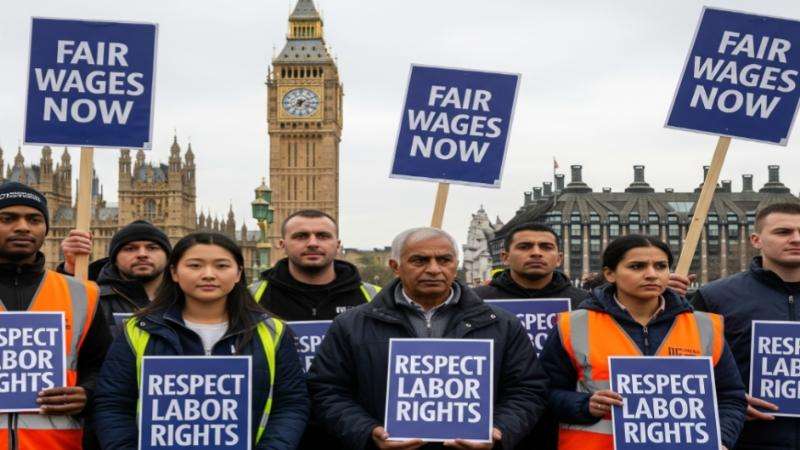A damning list of 518 employers has been released by the Department for Business and Trade (DBT), exposing companies that collectively underpaid nearly 60,000 workers by a staggering £7.4 million over several years. Among the prominent names caught in the crosshairs are hospitality giant Pizza Express, supermarket chain Lidl, motoring retailer Halfords, and even the national flag carrier, British Airways.
The underpayments, uncovered through investigations by HMRC between 2015 and 2022, meant that the remuneration for thousands of staff fell short of the legally mandated national minimum wage or the national living wage (for those aged over 21).
Topping the list of shame is Capita, a major government supplier, which owed a colossal £1.15 million to 5,543 workers, averaging out to an underpayment of about £208 per individual. A spokesperson for Capita attributed these to "inadvertent underpayments" between 2015 and 2021, citing issues like time allocated for call centre staff to log in. They stated that all owed monies were "paid immediately," and processes have been updated.
Pizza Express was found to have failed to pay £760,702 to 8,470 workers, with an average underpayment of approximately £90. A spokeswoman acknowledged an "historic unintentional technicality" between 2012 and 2018, asserting that the company "swiftly identified who was impacted, apologised and rectified."
Lidl was also heavily implicated, owing £286,437 to 3,423 employees. British Airways, meanwhile, failed to pay £231,276 to 2,165 workers. A BA spokesman clarified that an audit in 2017 revealed slight underpayments to cabin crew joining between 2014 and 2017 during their initial two months, which were "apologised and backdated payments issued several years ago."
Smaller groups of employees were also underpaid larger sums by some companies, with hotel chain Hilton UK owing 20 staff an average of £946 each. Restaurant chain Prezzo and travel group Tui were also named for underpaying some workers over several years.
The Dark Underbelly: Exploitation in Ethnic Minority Businesses
While major corporations face scrutiny, a far more insidious and widespread problem of minimum wage abuse persists, particularly within certain segments of the UK's business landscape. Disturbingly, intelligence suggests that thousands of Bangladeshi, Indian, Pakistani, Asian, and African business owners, particularly in the takeaway, retail, and hospitality sectors, continue to brazenly pay staff as little as £5 or £6 an hour in cash. This blatant flouting of the law disproportionately affects vulnerable individuals, including students and undocumented immigrants.
These unscrupulous practices often involve a system of modern slavery, where desperate individuals, lacking legal protection or a voice, are exploited. These workers are frequently subjected to excessive hours, dangerous working conditions, and live in fear of losing their meagre income or being reported to authorities. Their wages are often below half of the current national living wage of £12.21, trapping them in a cycle of poverty and dependence. This systematic abuse not only damages the integrity of the labour market but also casts a shadow over the vast majority of ethical business owners within these communities who adhere to the law.
Justin Madders, the minister for employment rights, condemned the underpayment, stating, "There is no excuse for employers to undercut their workers, and we will continue to name companies who break the law and don't pay their employees what they are owed."
The government has clarified that not all underpayments are intentional, but those who fail to pay staff correctly will face penalties of up to 200% of the total amount underpaid.
Leading by Example: Ethical Employers
In stark contrast to these exploitative practices, numerous businesses across the UK demonstrate a strong commitment to fair pay and employee welfare. Companies like John Lewis Partnership, Timpson, and Next are consistently lauded for their ethical employment practices. They not only ensure compliance with minimum wage legislation but often exceed it, offering competitive salaries, comprehensive benefits packages, and fostering positive working environments that value their employees. These companies prove that a thriving business can go hand-in-hand with treating staff with dignity and respect, setting a benchmark for responsible corporate citizenship.


_3.jpg)
_4.jpg)




.svg)



